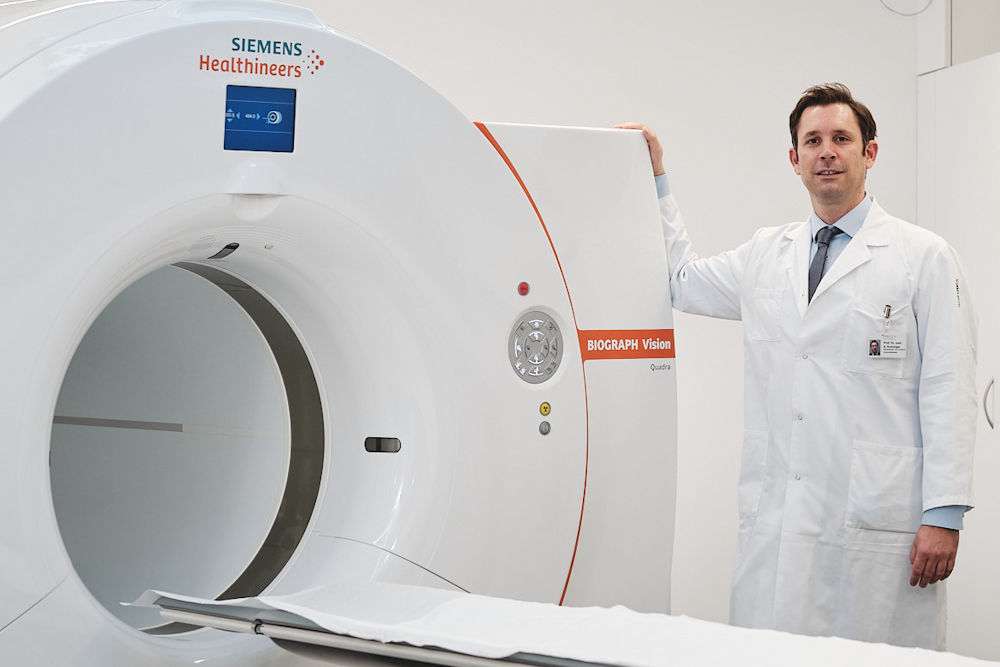
World’s fastest full-body scanner turned on in Bern

The world’s fastest whole-body PET/CT scanner has gone into action at Bern University’s Inselspital. The scanner opens up new dimensions in research, diagnostics and therapy planning, the hospital said.
“The new PET/CT scanner, which is going into operation at the department of nuclear medicine, is a real milestone,” said the department’s head doctor Axel Rominger in a statementExternal link on Wednesday.
“With a field of view extended over 106cm, it’s now possible to produce PET/CT images of the entire head and torso at one go. This means that, for the first time, actual 4D images of a large section of the body can be produced.”
Positron emission tomography (PET) is a diagnostic imaging procedure in nuclear medicine that produces cross-sectional images of the body by making weakly radioactively labelled substances (radiopharmaceuticals) visible. Tumours, for example, often have an intensive metabolism of sugar or express receptors that can be made visible in PET. A similar situation applies to the diagnosis of neurodegenerative diseases, where one often sees reduced levels of sugar metabolism in the brain.
Today’s PET scanners are combined with a computer tomograph (CT), which can visualise anatomical structures, such as bones and tissue, thus enabling the PET signal to be precisely located in the body.
Political level
The technology has also become faster by several orders of magnitude and is more sensitive.
Rominger pointed out the advantages of this for patients. “On the one hand, the time required for imaging can be shortened, and on the other, the radioactivity levels for the radiopharmaceuticals can be reduced, which makes for lower exposure,” he said.
The importance of this new facility is also being highlighted at the political level.
“We’re living through challenging times and are struggling with the consequences of a pandemic of unprecedented proportions,” said Alain Schnegg, responsible for health for the cantonal government. “If the current situation teaches us anything, it is that a good, high-performing and innovative healthcare system is of utmost importance, now and in the future.”

More
Zurich scientists develop special brain scanner

In compliance with the JTI standards
More: SWI swissinfo.ch certified by the Journalism Trust Initiative


















![The four-metre-long painting "Sonntag der Bergbauern" [Sunday of the Mountain Farmers, 1923-24/26] had to be removed by a crane from the German Chancellery in Berlin for the exhibition in Bern.](https://www.swissinfo.ch/content/wp-content/uploads/sites/13/2025/12/01_Pressebild_KirchnerxKirchner.jpg?ver=1ea8acae)










You can find an overview of ongoing debates with our journalists here . Please join us!
If you want to start a conversation about a topic raised in this article or want to report factual errors, email us at english@swissinfo.ch.